Six months after the Gaza conflict erupted, the prospects for a ceasefire remain unclear, while many civilians are desperate.
Six months ago, more than 1,100 Israelis were killed in a surprise attack by the militant group Hamas in southern Israel. Shortly after, the Israeli military (IDF) launched a bloody offensive in the Gaza Strip with the aim of "wiping out" Hamas and rescuing some 250 hostages the group had taken after the attack.
As geopolitical tensions rise and negotiations stall, there is growing speculation that the conflict in Gaza may be entering a new phase. But the question is whether that phase will be more peaceful or more bloody.
Last weekend, Israeli Defense Minister Yoav Gallant confirmed that the IDF was withdrawing a large number of troops from Gaza, including the city of Khan Younis, and would only maintain a brigade-sized combat unit to control the corridor across the center of the strip. With international criticism of Israel’s campaign growing, including from its close ally the United States, the Israeli withdrawal could be a precursor to a ceasefire in the region.
However, Mr Gallant said the decision to withdraw was to ensure soldiers had time to rest, recover and receive additional training in preparation for a full-scale offensive on the city of Rafah in southern Gaza, considered the last Hamas stronghold.
The United States, the European Union (EU) and the United Nations have urged Israeli Prime Minister Benjamin Netanyahu not to send troops into Rafah, an area that is home to some 1.5 million Palestinians. Located on the Egyptian border, Rafah is also an important humanitarian aid hub for the region.
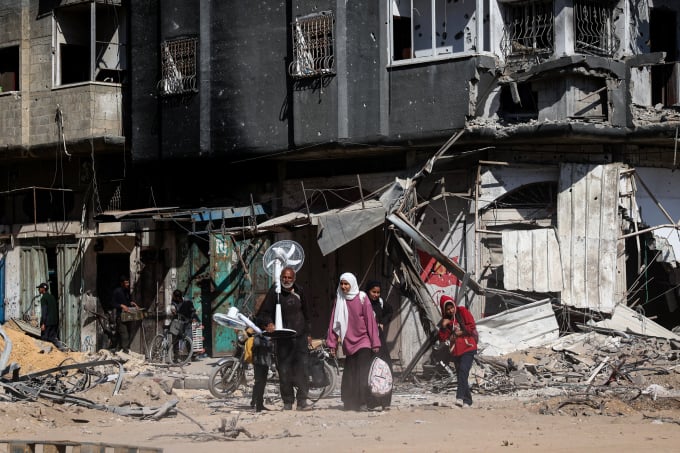
Palestinians carry their belongings as they evacuate from the rubble of fighting in Khan Younis, Gaza Strip, on April 7. Photo: AFP
Despite threatening to resume its Gaza offensive, Israel has resumed talks with Hamas in Egypt on a new ceasefire. Qatar, the mediator, is optimistic about the prospects for a ceasefire in the Gaza conflict. Earlier this week, Gallant himself acknowledged that talks were progressing and suggested that now might be the “right time” to free hostages held by Hamas in Gaza.
US President Joe Biden has called on Qatar and Egypt to push Hamas to the negotiating table. In a phone call on April 4, he warned Prime Minister Netanyahu that the US would be forced to change its policy towards Israel if it did not change its approach to the Gaza campaign.
Analysts say Israel has other reasons to try to reach a ceasefire in the Gaza conflict, including Tel Aviv’s increasingly direct confrontation with Tehran, Hamas’ main backer. Tehran has vowed to respond forcefully after a raid on the Iranian embassy in the Syrian capital Damascus last week that killed an Iranian brigadier general.
"If Iran's attack originates from its territory, Israel will respond and attack targets in Iran," Israel Katz, head of the Israeli Foreign Ministry, said on April 10, raising concerns about the risk of direct clashes between the two countries.
A ceasefire, even a temporary one, between Israel and the Iran-backed Hamas force at this time could help calm those tensions, preventing the risk of a regional conflict sparking a global crisis.
Things are also getting tougher for Netanyahu. The United States, Israel’s longtime ally, is shifting from a staunch supporter of the offensive to trying to push for a ceasefire. NATO member Türkiye has said it will punish Israel for its actions in Gaza.
At home, Netanyahu’s position is also shaky. He has faced criticism over his handling of the campaign against Hamas, protests and even complaints from the families of hostages.
A ceasefire that includes a hostage provision may satisfy Netanyahu's political needs, but it is also a pressing humanitarian need for the people of Gaza, observers say.
The international community is increasing pressure to reach an agreement, and the biggest sign is the US sending CIA Director William Burns to participate in the latest round of negotiations in Cairo.
"The US has put a lot of pressure on Israel, Egypt and Qatar to push Hamas. The fact that the head of the CIA showed up and demanded that all the negotiators involved be senior is a sign of the increased pressure from the US," said Gershon Baskin, who helped negotiate a deal with Hamas to release Israeli soldier Gilad Shalit in 2011.
But observers say these pressures do not mean a deal is within reach, especially after many previous rounds of negotiations have been fruitless.
Any deal is expected to include the release of some hostages held by Hamas in exchange for the release of Palestinian prisoners held in Israeli jails, which was the basis for the temporary ceasefire in November 2023.
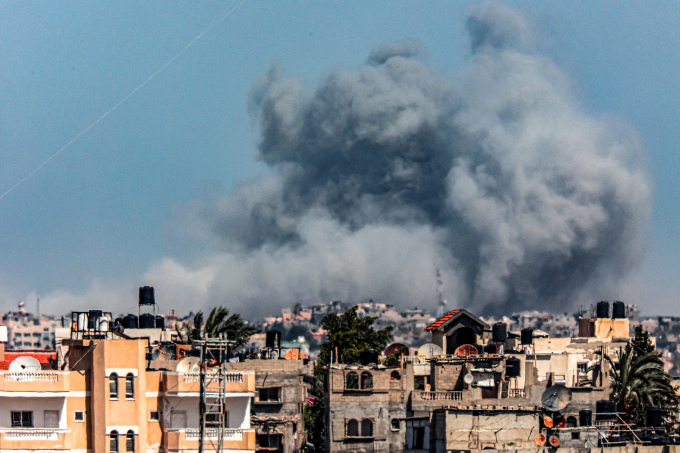
Smoke rises after Israel bombed Rafah, southern Gaza on March 20. Photo: AFP
However, Hamas is said to have told negotiators that it could not find the required 40 hostages, possibly because many of the hostages had been killed or were in the hands of other armed groups in Gaza.
Yahya Sinwar, the Hamas leader in Gaza, may have the final say on whether to ratify the terms of the ceasefire. But contacting Sinwar is difficult and time-consuming because it involves multiple intermediaries.
Baskin said Hamas also expected more demands for the release of prisoners and would not accept any of them being deported to another country, demands that could hinder negotiations. Hamas also said that without guarantees of a permanent ceasefire, Israel would continue to attack the group after the hostages were released.
“From my experience, the biggest challenge is whether the decision makers on both sides are ready to move forward with a deal. The answer is not clear right now,” Baskin said. “When they are ready, they will find common ground.”
Any news from Cairo could give hope to some Gazans yearning for a return to peace.
“We are so exhausted physically, emotionally and mentally that we have forgotten what life was like before,” said Ahmed Abu Shahla, a 64-year-old retired teacher in Gaza City.
Some, however, have stopped caring. Basheer al-Farran lost his wife and three children in the early days of the war. The current ceasefire will not help him get his life back.
"It doesn't matter anymore," he said, adding that a ceasefire would mean many more years of misery as Gaza was devastated.
Thanh Tam (According to Politico, BBC, Al Jazeera )
Source link




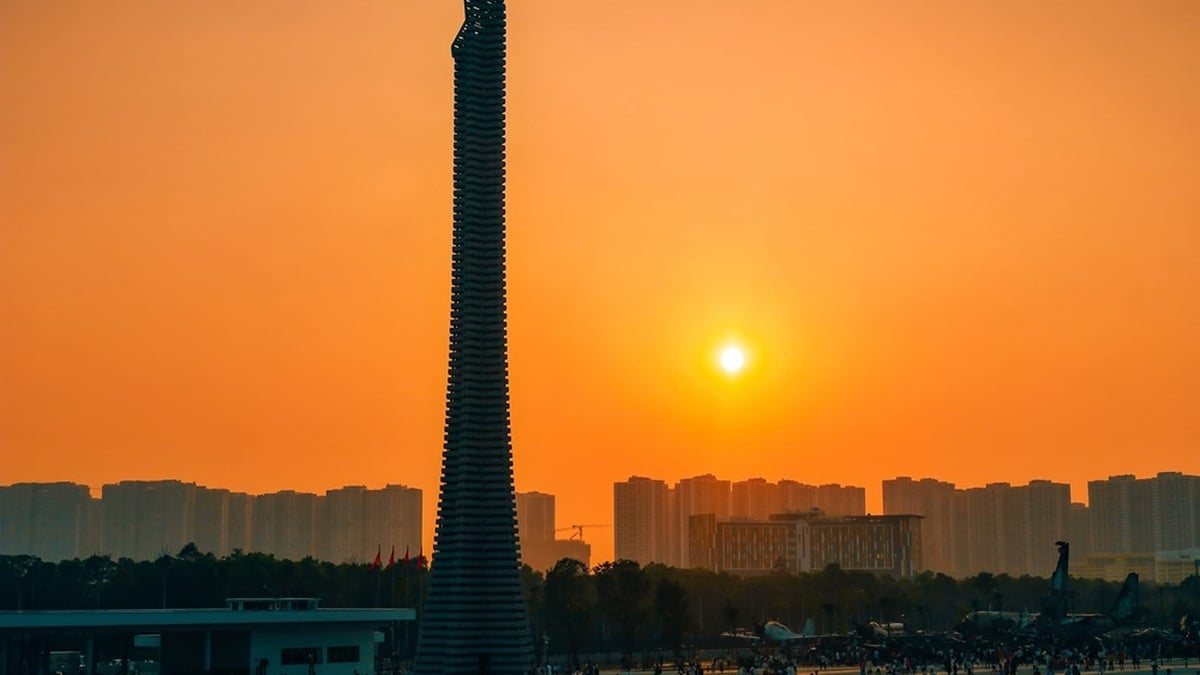



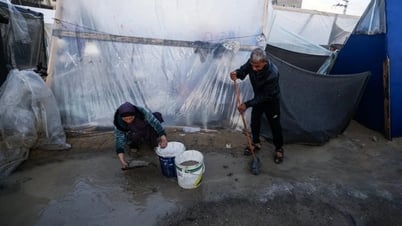

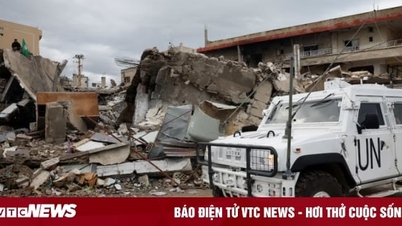







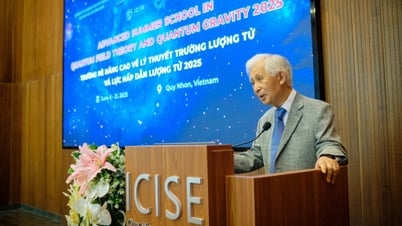





















































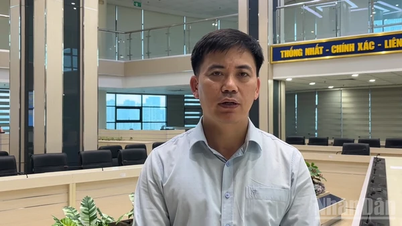
































Comment (0)